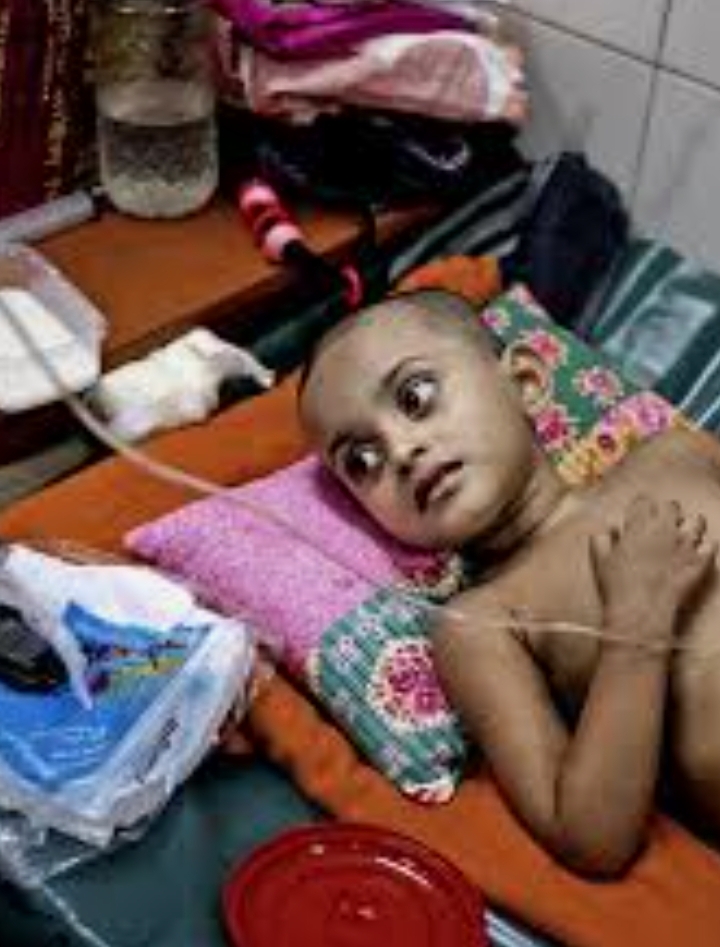Ivory Coast confirms cholera outbreak with 7 deaths; 45 cases reported in Abidjan area. Authorities urge hygiene and safe water use amid vaccine shortage and climate challenges.
Ivory Coast Declares Cholera Outbreak After 7 Deaths in Abidjan Suburb


Ivory Coast has officially declared a cholera outbreak following the confirmation of seven deaths linked to the disease. The announcement came on Thursday from Daniel Kouadio Ekra, head of the National Institute of Public Hygiene. He revealed that stool sample analyses conducted by the Pasteur Institute of Côte d’Ivoire detected Vibrio cholerae, the bacterium responsible for the illness.
The alert was triggered after an unusual cluster of deaths was reported in the coastal village of Vridi Akobrate. “On May 25, 2025, the Port-Bouët-Vridi health district reported five deaths in the village of Vridi Akobrate,” Ekra said. Investigations began immediately to trace the source and extent of the outbreak.
Currently, 45 confirmed cases of cholera have been recorded in Vridi Akobrate, a densely populated fishing settlement located on the outskirts of Abidjan, the country’s economic capital. Among these cases, seven have resulted in death. Health officials noted that all of the fatalities occurred within the first two days of the outbreak, suggesting a rapid and severe progression of the disease among affected individuals.
Cholera is a highly infectious disease that spreads primarily through the ingestion of contaminated food or water. It can cause acute diarrhea, vomiting, and life-threatening dehydration within hours if not treated promptly. While it is preventable and treatable, cholera continues to pose a serious public health challenge in regions with poor sanitation infrastructure.
Ivory Coast has experienced several cholera outbreaks since the 1990s, with vulnerable communities often bearing the brunt due to limited access to clean water, overcrowded living conditions, and inadequate health facilities. In this latest outbreak, these systemic challenges are once again under scrutiny.
The World Health Organization (WHO) classifies cholera as a disease closely associated with poverty. It is most prevalent in areas lacking basic sanitation and clean drinking water. According to recent WHO reports, Africa has recorded eight times more cholera-related deaths this year than the Middle East, the second-most affected region globally. This surge in fatalities is alarming public health experts who point to a combination of environmental and structural issues.
Health officials warn that Africa’s vulnerability to cholera is being intensified by multiple compounding factors. These include the worsening effects of climate change, which is disrupting weather patterns and water systems, and the El Niño phenomenon, which contributes to flooding and the contamination of water supplies. In addition, a global shortage of cholera vaccines is severely hampering efforts to prevent new outbreaks, especially in low-income countries where the need is most urgent.
Amid growing concern, the Ivorian government is urging citizens to take precautions to reduce the risk of infection. Daniel Kouadio Ekra emphasized the importance of basic hygiene and safe water consumption practices. “The government calls on the population to remain vigilant, namely to consume safe drinking water, avoid street water bags, and wash their hands regularly," he advised.
In response to the outbreak, public health teams have been deployed to Vridi Akobrate to manage cases, distribute oral rehydration solutions, and raise awareness among residents. Surveillance has also been increased in surrounding districts to identify potential new cases early and prevent further spread.
Health authorities continue to monitor the situation closely and are working in collaboration with international health agencies to secure emergency medical supplies and vaccines. However, the outbreak serves as a stark reminder of the urgent need for long-term investments in water, sanitation, and healthcare infrastructure to protect vulnerable populations from preventable diseases like cholera.

 বাংলা
বাংলা  Spanish
Spanish  Arabic
Arabic  French
French  Chinese
Chinese 
